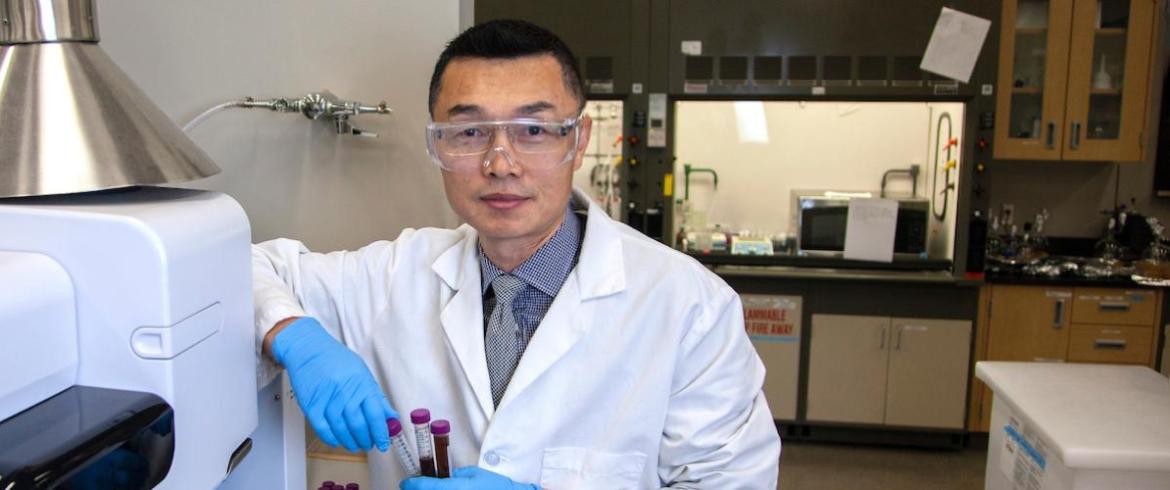
Gang Chen, civil engineering faculty member, is working on using engineered biochar as a low-cost carbon material that has the potential as a sorbent for harmful PFAS in the environment. (M Wallheiser/FAMU-FSU Engineering)
They’ve been around for years. A group of chemicals known as PFAS, are man-made materials and have been widely used in industry and consumer products since the 1950s. PFAS are found in nonstick cookware, water repellent clothing, and many household products and are even used to fight fires.

For all their remarkable qualities, they have been linked to serious health problems including, cancer and liver disease. Their disposal in landfills has allowed harmful chemicals to find their way into our water, soil, and air.
In a new investigation, a team of civil engineering researchers at the college discovered a novel, low-cost method to reduce the amount of harmful perfluorooctanoic acid or PFOA released into the environment. Gang Chen is a professor in civil and environmental engineering and is the lead investigator for the study that uses engineered biochar.
Their work was published in the Journal of Cleaner Production.
“PFOA is one of the PFAS compounds, which has been determined by regulators to be persistent, bio-accumulative and toxic,” Chen says. “Although it is no longer manufactured in the U.S., it is still produced internationally and can be imported into the U.S. in consumer goods.”
Chen says one of the problems of PFOA is they eventually contaminate the water, soil or air and be a risk to human health after its disposal in landfills. Because of their strong-chemical bonding capability, PFOA is difficult to destroy.
The U.S Environmental Protection Agency is taking steps to reduce the risks and has introduced several initiatives. Researchers and partners are trying to answer critical questions about PFAS, including how to manage and dispose of them. Engineered biochar might be the answer.
Biochar is a low-cost carbon material that has the potential as a sorbent for PFAS. Adsorption has proven to be a cost-effective process for removing harmful PFOA and is a process in which atoms, ions, or molecules adhere to the surface of the adsorbent. The researchers found aluminum and iron components added to biochar could enhance its abilities to adsorb PFOA.
“We have discovered a cost-effective process to remove PFOA,” Chen said. “By engineering biochar’s adsorption abilities, it becomes an ideal sorbent that can be safely destroy PFOA by thermal treatment like incineration after adsorption.”
Yudi Wu is a postdoctoral researcher at the University of Albany and is working with Chen and Lin Qi, a graduate researcher in civil engineering at the college, on the study.
Wu explains, “Our research on engineered biochar is designed to break the loop of PFAS cycling in landfills, we expect that engineered biochar will become popularly utilized in the way wastewater is treated in the future.”
After their initial findings, Wu and Qi are continuing the study and will be present new discoveries in the Journal of Chemosphere in the future.
Their research was funded through Florida State University by the Hinkley Center for Solid and Hazardous Waste Management.
